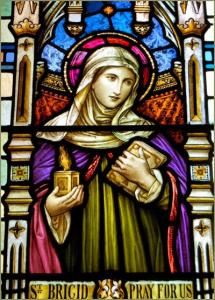Abortion was illegal in Ireland until 2018, when the people of Ireland voted overwhelmingly to repeal the country’s constitutional ban criminalizing it.
This was not a Secular vs. Catholic vote. It was a Devout Laypeople vs. Demonstrably Corrupt Clergy Who Don’t Have A Clue What They’re Talking About vote. (And the good side won.)
 Those are the categories that matter, too, when considering whether and how the centuries of anti-abortion laws in Ireland before 2018 constitute some kind of binding “tradition” that is “deeply rooted in history.”
Those are the categories that matter, too, when considering whether and how the centuries of anti-abortion laws in Ireland before 2018 constitute some kind of binding “tradition” that is “deeply rooted in history.”
On the one hand, you have centuries of Irish church authorities and political authorities condemning abortion as a crime, a grievous sin, and an affront to the sanctity of life. That is all on the record, an undeniable history and tradition with deep roots.
On the other hand, you have even more centuries of Irish laypeople insisting that those clergy and the political leaders beholden to them are clueless gobs who don’t understand the first thing about other people’s lives and who wouldn’t recognize the sanctity of human life if it bit them in the ass. This, too, is all on the record — also an undeniable history and tradition with deep roots. (And it was a tradition with vastly superior poems, songs, and stories.)
The 2018 referendum decriminalizing abortion in Ireland, then, was not some kind of radical break from that country’s history. It was, rather, simply a shift in the balance of power in which the overwhelming majority of the people finally said “No” to the small minority that had previously managed to rule them.
That belated, but emphatic “No” was also something “deeply rooted in history.” It was rooted in a long ugly history of oppression, cruelty, and suffering — the history of the Magdalen laundries and of the unmarked mass graves at sites like Tuam.
History is cumulative, it seems, and at some point the people who glibly toss infants into unmarked mass graves lose any credibility when lecturing others on “the sanctity of human life.”
Anyway, leading up to that 2018 referendum, religious historian Maeve Cullan shone a spotlight on the long, popular history of actual Irish laypeople in an essay for the Irish Times, “Saints once did abortions – it was a lesser sin than oral sex.” Dr. Cullan points to several ancient, still-cherished saint stories in which canonized champions of Christianity were said to have “emptied” the wombs of desperate women in need. She also highlights the detailed, baroque “penitentials” of medieval Catholic Ireland, which prescribed penances for abortion that were lesser than those assigned for women giving birth out of wedlock or for men committing “fornication”:
Medieval Catholic Ireland included saints who performed miraculous abortions and penitentialists who presented abortion as a lesser offense than fornication, childbirth, and oral sex.
Today’s repeated refrain that “you can’t be Catholic and pro-choice” indicates an ignorance of history and a disregard for the views of the majority of Catholics themselves, who hold much more progressive values than church leaders generally allow, including in Ireland. A January 2018 Irish Times/Ipsos MRBI poll found that 65% of Irish voters supported repealing the Eighth Amendment and allowing abortions at least for the first trimester. Some see this acceptance of abortion as further proof that the Irish are losing their Catholic foundation, but those who support legal and safe abortion might better reflect a “medieval” Irish Catholic attitude than those who oppose it.
The Powers That Be did not appreciate Cullan’s history lesson or her documented reminder that devout Catholic laypeople in Ireland had a very long, morally serious, credible tradition that understood more about abortion than the gravediggers of Tuam ever could.
And so TPTB took to the Catholic News Agency to rebut and refute and condemn Cullan’s history lesson: “Did Irish saints perform abortions? Don’t believe it, scholars say.” It’s sort of darkly hilarious that this effort wound up confirming every word she wrote. CNA’s piece cites two male historians and a priest, all of whom sound like iconoclastic Protestants as they rush to dismiss and discredit centuries of hagiographies and saint-legends as disreputable “folktales.”
They use those words — “folktales,” “folklore” — clearly failing to comprehend the very point Callan was making. Yes, these are the tales, the stories, that most folk have been telling, and embellishing, for more than a thousand years. Yes, the miracle stories of St. Brigid performing miraculous abortions for women do not constitute any evidence that such actual miracles were ever performed. But these stories do provide vast mountains of evidence — as all of the scholars and priests in the CNA piece, like Dr. Cullan, insist — that the good Catholic laypeople of Ireland, from medieval times up through 2018 and through 2022, believed that this is a picture of saintly behavior and of benevolent miraculous intervention. The stories prove that this is what faithful Irish Catholics believed and still believe that saints ought to be doing.
They are proof, in other words, that this understanding of the moral significance of abortion is just as “deeply rooted in history” — and in tradition, and in religious devotion — as the categorical and superlative denunciation long taught by the minority of the devout.
St. Brigid, pray for us.












